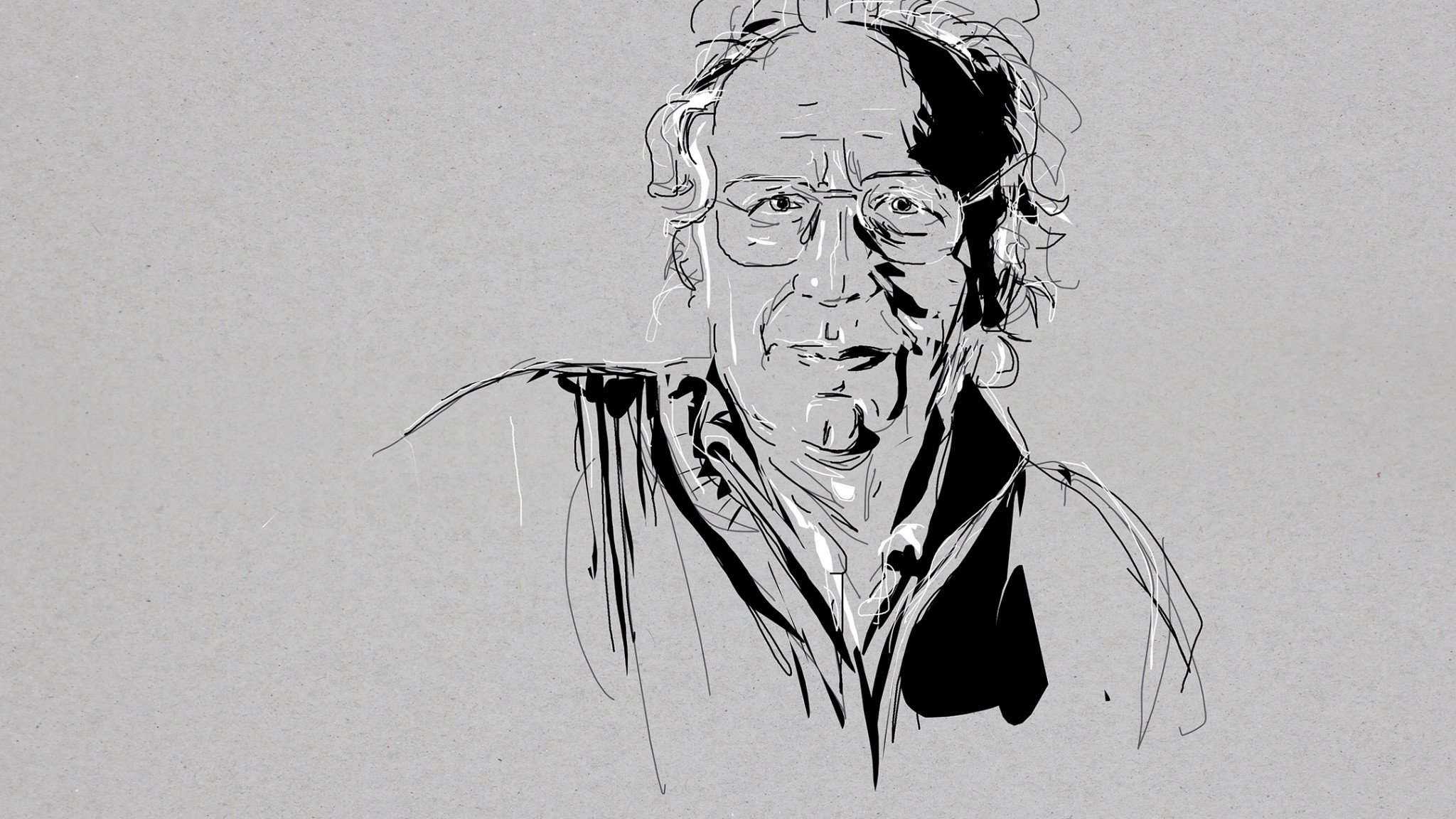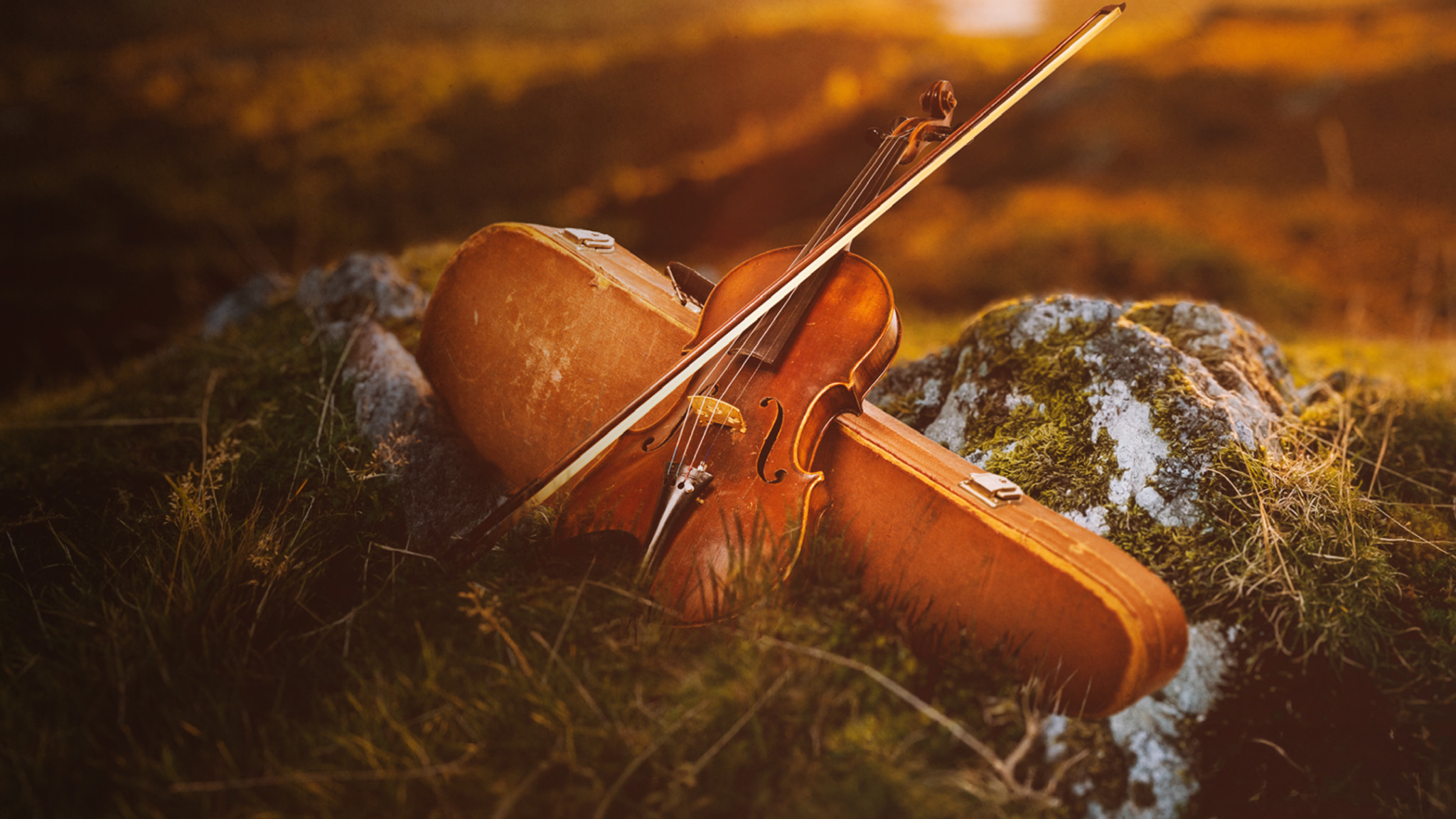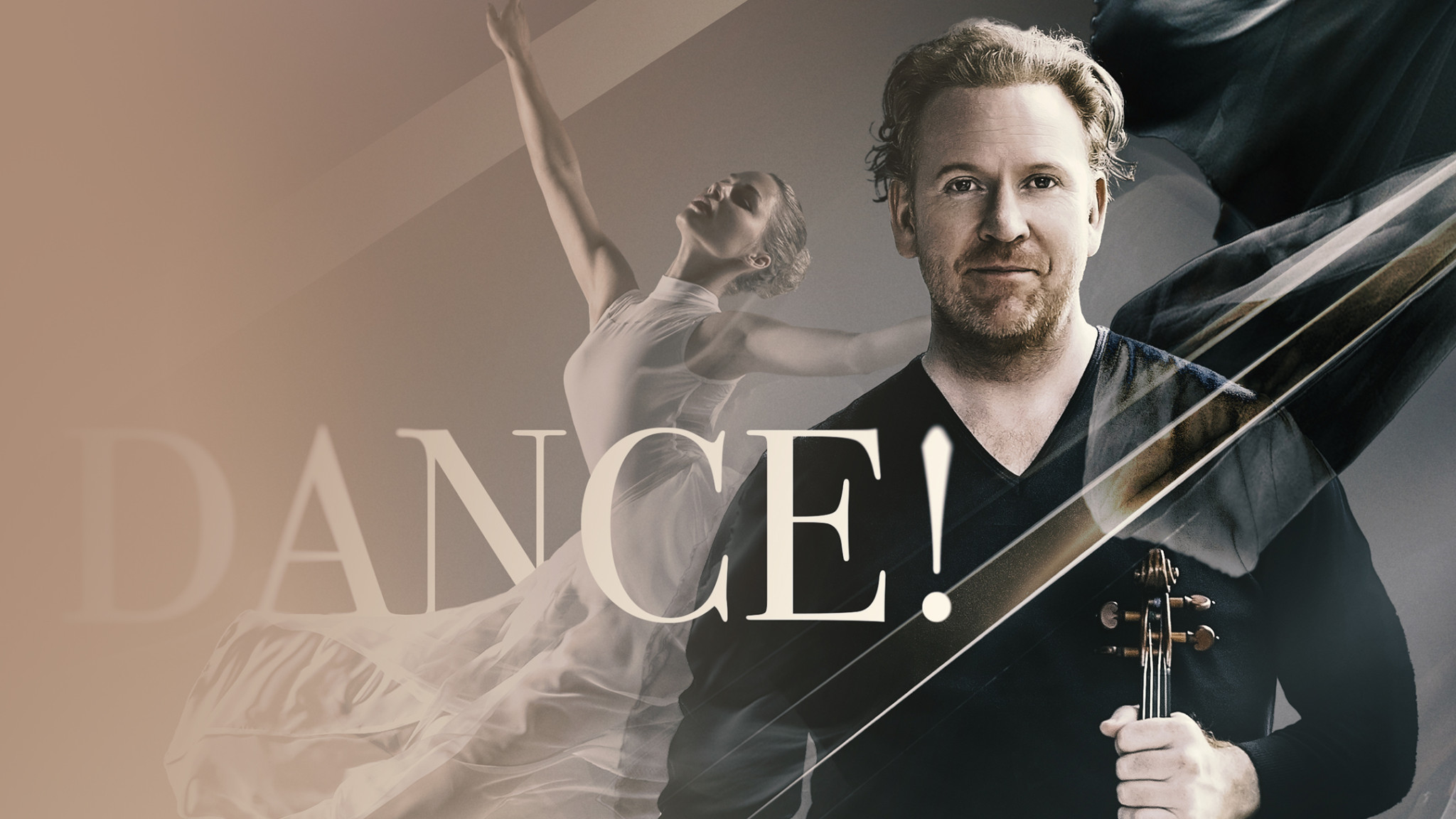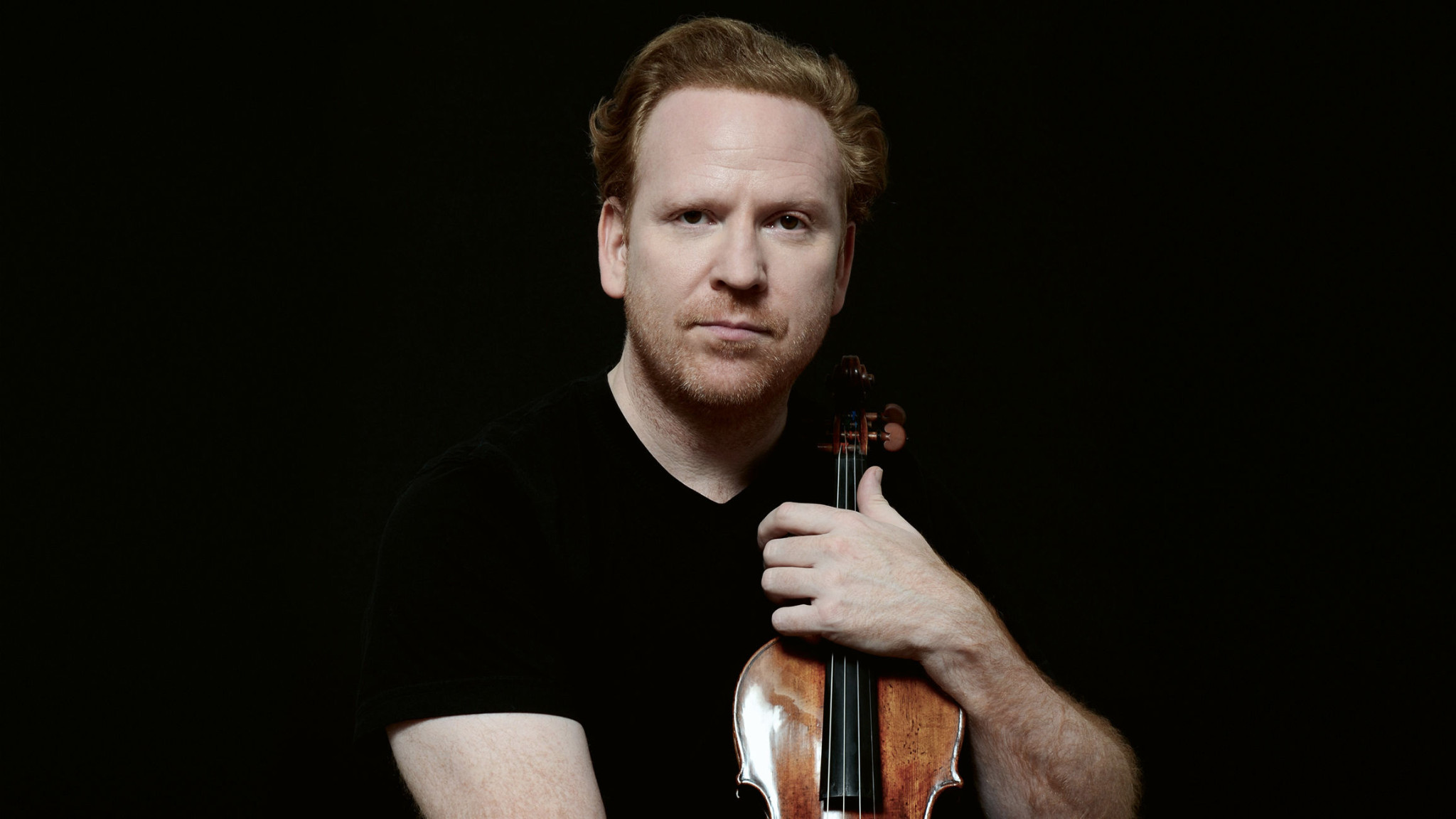Daniel Hope · Alexey Botvinov: Silvestrov - An interview with the artists

Valentin Silvestrov’s exquisite music has attracted global attention in recent months. The sights and sounds of war were part of the Ukrainian composer’s childhood in Nazi-occupied Kyiv. They returned to haunt him eighty years later as Russian missiles announced the shocking start of a new invasion, one directed against an independent Ukraine by its hostile neighbour. Earlier this year violinist Daniel Hope and pianist Alexey Botvinov, himself an enforced exile from Odessa, greeted the composer in Berlin, his place of refuge. The duo’s high-profile performance and fundraising EP of his music prepared the ground for their latest album for Deutsche Grammophon – set for release on 30 September 2022 – an all-Silvestrov programme complete with the world premiere recording of Pastorales 2020 and a selection of ineffably beautiful companion pieces. They share their reflections on the composer and why his music matters now more than ever.
You planned to record this album of Silvestrov’s music long before Russia invaded Ukraine. Can you sketch its origins and describe the circumstances in which it was made?
Daniel Hope: I’ve visited and performed in Odessa for the past eight years thanks to Alexey Botvinov and his Odessa Classics Festival. I fell in love with the place and felt an instant connection to it. My teachers and violinistic heroes are all connected to Odessa, like so many great musicians. Alexey and I thought it would be wonderful to commission a piece by a Ukrainian composer to perform at the 2020 Festival. Without hesitation, he said, “What about Silvestrov?” It never even occurred to me to ask him, as he’s so famous and so busy. I didn’t believe we’d be able to get him to do it. But Alexey did ask him and he came straight back and said, “Yes, I want to do something.” It was incredible.
Wearing my other hat as President of the Beethoven-Haus in Bonn, I spoke to my colleagues there about the idea of officially commissioning Silvestrov to compose a work for the 250th anniversary of Beethoven’s birth in 2020. We took the liberty of suggesting it might have a connection to Beethoven’s “Pastoral” Symphony, which was the focus for several important Beethoven Year projects. Silvestrov’s new work, Pastorales 2020, reflects certain elements of Beethoven’s Sixth Symphony and yet expresses them in an entirely original way.
Because of the pandemic, we never had the chance to perform the whole composition in public. But Alexey and I were already thinking about the follow-up to our album of music by Alfred Schnittke and wanted to record music by another strong, uncompromising character with whom we had a connection. My personal connection was to Schnittke; Alexey’s is to Silvestrov. So we decided it had to be Silvestrov. As well as the world premiere of Pastorales 2020, the album also includes such extraordinarily beautiful pieces as the “Chopin-Augenblicke” from his Zwei Stücke (2003), the three exquisite miniatures of 25.X.1893…zum Andenken an P.I. Tschaikowskij, and the Hommage à J.S.B.
We’d planned to meet and work with Silvestrov and record the album in Ukraine. We were scheduled to study with him in February and March this year, but the war came. With the help of friends and some journalists from the Deutsche Welle, Silvestrov was lucky to escape from Ukraine by foot, crossing the border into Poland and making his way to Berlin. Alexey and I had organised a performance on 11 March 2022 in aid of Ukraine at the Kaiser Wilhelm Memorial Church in Berlin, one of the most symbolic places in Germany. We heard Silvestrov had just arrived in the city and reached out to him. He came to the concert and we played that night for him. Performing his music for this cause, with him sitting in the front row, was a deeply moving experience. It made us even more determined to record this album.
The concert was televised, the church was packed and it was attended by the former Federal President of Germany. Silvestrov got up spontaneously and made an angry, impassioned speech, which was simultaneously translated from Russian to German. The audience gasped at some of his words, they were all sitting on the edge of their seats. Then, suddenly, he put the microphone down and walked to the piano. He sat down, saying he would play a piece of music which he had envisaged while he was escaping from Ukraine. This unbelievable beauty, almost a bouquet of sound, came out in direct contrast to his fearsome speech. It said a lot about him to me.
I’d always been attracted to Silvestrov’s music. But when you place it in the context of that concert and the images we had been seeing on television, well…! Alexey and I were recording this album at Schloss Elmau, a kind of “Xanadu”, as it were, while receiving increasingly horrendous messages about Ukraine every time we turned on our phones. It changes the way you think about, play and breathe this music. It certainly feels different having recorded it now, both natural and painful at the same time.
Before making the album, we recorded a digital EP for Deutsche Grammophon for the international aid charity Aktion Deutschland Hilft to raise funds for Ukraine. It contains pieces from Silvestrov’s Melodies of the Moments cycle, together with works by fellow Ukrainian composer Myroslav Skoryk, who died in 2020, and former Odessa resident Jan Freidlin.
This was your first meeting with Silvestrov, Daniel, but not your first encounter with his music. Listening to the album and to you talk about him, it’s clear that his musical language touches you at the deepest level. Why do you think it goes so deep?
Daniel Hope: Silvestrov’s music lives and breathes melody. When we perform his works for an audience, it has a profound effect. Its simplicity is, I believe, the deepest form of nurturing one’s feelings and emotions right now. He gets to the core, to the source of being human. And he does that – and I say this with enormous respect – with a childlike simplicity. Yet his scores are tremendously dense with expression and dynamic markings. So what appears to be simple, basic melody is conceived within a constant state of change, a shifting of the tide. It’s restless, arresting music within a soft shell. I don’t know any other composer like him. His is a deeply emotional music expressed in the very subtlest ways.
What Silvestrov calls his metamusic or “metaphorical music”, as the name implies, is symbolic of something much greater than the sum of its parts. He has spoken of his pursuit of a universal music, rooted in melody and the expressive gestures of song, something open to shared human experience. It is the opposite of those divisions and hatreds created since the start of the Ukraine war, which we’ve seen in the crude associations of past Russian music with contemporary Russian geopolitics. How do you feel about the suppression of Russian artists on the world stage?
Alexey Botvinov: We can talk about this political issue of cancelling Russian music, but of course I don’t agree with it. I know this is also true for Silvestrov: for him, Tchaikovsky’s music is universal. We can try to imagine how people living in Kharkiv or Kyiv feel; I can understand why they’re not performing Russian repertoire in a city under Russian bombs. But music goes far beyond any national culture. You see how Silvestrov plays with the styles of Schubert, Mozart, Tchaikovsky or Bach in his music; it’s because he feels connected somehow to the spirit of these composers. I am so excited that we began this project before the war started, not simply because Silvestrov is in fashion – as he is now – but because we both so admire his music. He’s a unique composer with his own language, but that language is universal.
Silvestrov has stated that music is always song, “even if one cannot sing it”. For him, music does not represent “a philosophy or world-view”; rather, he sees it as “the musical testimony to life”. His experience as a refugee (one who turns 85 in September) surely brings this idea into sharp focus…
Alexey Botvinov: It’s not easy for him. He’s an introvert. But when we met with Daniel in Berlin, I’ve never seen him be more open. After this escape, he was full of emotion, full of anger. He talked to us and our concert audience very openly and with so much emotion. After he finished talking about the horrible things he had seen and this great exodus of people, he was transformed by what he played on the piano. I thought it would be something tragic. But he played this beautiful, dreamlike, positive piece. It was quite amazing!
One of the pieces on the album, Nostalghia (2001) for solo piano, is strikingly individual even by the measure of Silvestrov’s mature music. It seems to evoke a longing for the place where the soul is at peace, whether home or heaven on earth.
Alexey Botvinov: I’m in love with this music! It’s a mixture of free jazz and meditation. Maybe it has some reference to Andrei Tarkovsky – but not to his film Nostalghia. Let’s say Silvestrov, Arvo Pärt, Tarkovsky, the filmmaker Sergei Parajanov belong to the same circle of ideas. To me this music’s dreamy, hallucinatory quality has much in common with the best films of Tarkovsky.
Throughout his life Silvestrov has resisted the pressure to conform, whether in Soviet times or more recently, to match a certain idea of what a contemporary composer’s music should sound like. It seems that speaking out or stepping out of line, something that is part of his nature, has become more dangerous in so many ways and places. Can you believe what we are witnessing in Ukraine, Russia and elsewhere today?
Daniel Hope: I live in Berlin, from where my Jewish grandparents were forcibly removed in the 1930s. I never thought I’d find myself in a situation where one is witnessing similarities to those dark times. We have, amongst other things, this extraordinary situation where Holocaust survivors, now in their nineties, who had fled Germany to live in Ukraine after the Second World War, are coming back to Germany as refugees. And I never thought I would have to explain to my young children that a war is taking place on our doorstep.
Alexey Botvinov: The fact that I am now an exile from Odessa is extraordinarily sad. The pain is so high. I will try to do my best to make music with the hope one day of returning home. I adore this city from so many sides – for its legendary music tradition and its legendary tradition of humour. For Russian speakers, Odessa is the capital of humour. I don’t know when I will be able to return; nobody knows. It makes you feel very strange. The first concert I gave after the war began was very difficult. I thought, why am I doing this – it makes no sense. But music helps and I see that it makes sense like never before.
I have played many concerts since the war started, in Switzerland, Germany, Estonia, Italy. At every performance, some refugees from Ukraine have come to me. It’s so emotional – they’re in tears. They all say how important it is to feel this connection through music. Now, even more than in “normal” times, I feel how powerful music is for us all. That is what I hope people will feel when they listen to our Silvestrov recording.





